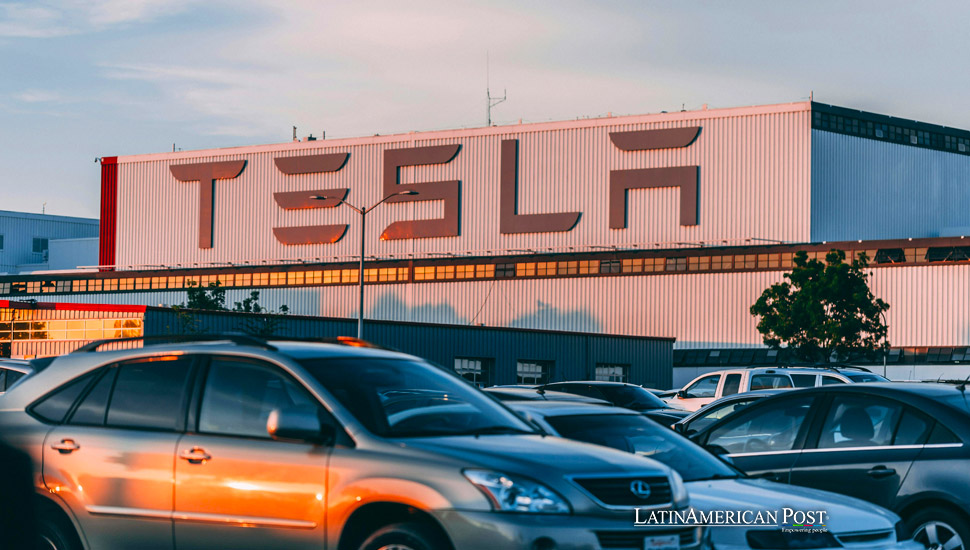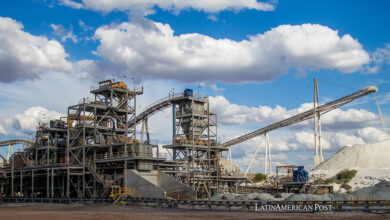Musk Halts Tesla Gigafactory Factory in Mexico Amid Trump Tariff Threats

Elon Musk’s decision to pause the construction of Tesla’s gigafactory in Nuevo León, Mexico, until after the U.S. presidential election has sparked varied reactions among Mexican leaders. The move reflects concerns over potential tariffs under a Trump presidency.
Last week, billionaire Elon Musk announced during an investor and media call that he would halt the construction of Tesla’s gigafactory in Nuevo León, Mexico, until the U.S. presidential election concluded. Musk cited concerns over potential tariffs that Donald Trump, whom Musk supports and has pledged to finance, promised to impose on cars manufactured in Mexico if he wins the presidency. “It makes no sense to invest,” Musk stated, if these tariffs become a reality.
The announcement prompted swift reactions from the Mexican leadership. President Andrés Manuel López Obrador downplayed Trump’s warning during his daily press conference at the National Palace. “Don’t believe everything said during campaigns,” he cautioned. “As we always say here, campaigns are full of passion, rhetoric, and exaggeration, not just in the U.S., but in any country with elections. Once elections are over and governments are formed, things change.”
López Obrador also mentioned that he had sent a letter to the Republican candidate, urging him to reconsider his stance. In the letter, he reminded Trump that he was among the first to condemn the recent attack on him. The president emphasized that the U.S. and Tesla benefit from the low-cost production only Mexico can provide. Furthermore, López Obrador speculated that Musk’s announcement might be a strategy to generate financial speculation. “It’s not serious; they must have another business plan or already made the deal because many times these companies don’t produce but speculate: they release news, do well in stock markets, their share prices rise, and production becomes secondary,” he conjectured.
Skepticism from Claudia Sheinbaum
Claudia Sheinbaum, Mexico’s president-elect, also doubts Musk’s reasons for halting the factory’s construction. “Since the announcement, there haven’t been many advances. We need to see if the real reason is the election and Trump’s statements, or if there are other particular reasons for Tesla,” Sheinbaum said. The construction of Tesla’s gigafactory in Nuevo León was scheduled to begin in 2026 in Santa Catarina, Monterrey.
Sheinbaum also found it unlikely that the U.S. would impose special taxes on cars produced in Mexico. “I find it very difficult that they will impose tariffs, and we must always consider reality, what is happening, before any political matter. Now, it’s our responsibility to defend Mexico as a free, sovereign, and independent country,” she stated at a conference.
Musk’s Political Ties and Speculative Moves
Elon Musk’s political ties have raised eyebrows. The Wall Street Journal reported last week that Musk plans to donate up to $45 million monthly to a political action committee (PAC) supporting Donald Trump. The same source indicated that Trump is interested in having Musk in his cabinet if he wins the presidency. Following the attack on Trump on July 14, Musk tweeted, “The last time the U.S. had such a tough candidate was Theodore Roosevelt.”
Musk’s decision significantly impacts Mexico and highlights the intricate interplay between politics and business. The halt in the gigafactory’s construction affects potential economic benefits and reflects the broader geopolitical dynamics at play.
Broader Implications for Latin America
The situation underscores a broader trend in Latin America, where political uncertainty and foreign policy shifts in powerful nations like the U.S. can significantly impact local economies. Countries in the region often find themselves at the mercy of political decisions abroad, which can bolster or hinder economic development.
Potential tariffs pose a substantial threat to Mexico. The automotive industry is a crucial part of its economy, providing jobs and contributing significantly to GDP. The uncertainty created by Musk’s announcement and Trump’s tariff threats could lead to decreased investment and economic instability.
Moreover, the issue of low-cost production in Mexico is more than just a concern for Tesla. Many multinational corporations rely on Mexico’s affordable manufacturing capabilities. Any significant policy change in the U.S. that affects this dynamic could have widespread repercussions, disrupting supply chains and affecting economic relations between the two countries.
The Need for Strategic Responses
Mexico’s leaders must navigate these challenges strategically. While Musk’s decision is a setback, it also allows Mexico to reassess and strengthen its economic policies and international relationships. Diversifying trade partners and reducing dependency on any single nation could mitigate the risks associated with such political uncertainties.
Additionally, Mexico could leverage this situation to push for more favorable trade agreements and strengthen its domestic industries. By investing in local technology and manufacturing capabilities, Mexico could enhance its economic resilience and reduce the impact of foreign policy shifts.
Elon Musk’s halt on the Tesla gigafactory in Nuevo León brings to light the complex relationship between business decisions and political landscapes. While the announcement has caused concern among Mexican leaders, it also serves as a reminder of the need for strategic economic planning and diversification.
Also read: Mexico and Huawei Partner to Empower Women in the Digital Economy
The broader Latin American context offers valuable lessons as Mexico grapples with these challenges. Political stability and solid and diversified economies are crucial for weathering the impacts of global political shifts. By taking proactive steps to strengthen its economy and international relationships, Mexico can better navigate future uncertainties and ensure sustained growth and development.





